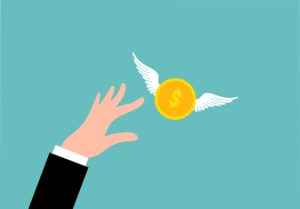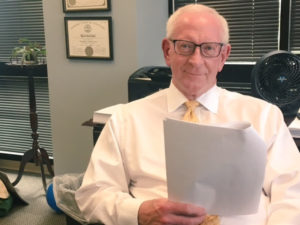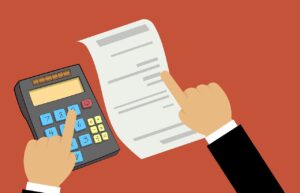 Can’t Pay a Debt? What to Do
Can’t Pay a Debt? What to Do
If you suddenly realize you can’t pay a debt, you still have rights, and you still have options. Tons of people go through this every day, and there are ways to manage it without losing control.
As a bankruptcy lawyer, I’ve helped clients through this situation for decades. Here’s a simple guide for what to do (and what not to do) when you realize you can’t make a payment.
What to Do When You Can’t Pay a Debt
1. Review Your Budget Honestly
First, take a look at what you earn and what you spend. Figure out what you can afford, even if it’s a temporary amount.
If you’re able to cut back in one area to make a smaller payment on the debt, it can help show you plan to pay in full and save you some headaches later.
If you don’t have a budget or wouldn’t know where to start, we have some resources to help.
2. Communicate in Writing
If a creditor reaches out, respond politely and ask them to communicate by mail instead of by phone.
You have the legal right to ask the creditor to verify the debt in writing. This helps you confirm the amount and who actually owns the debt (sometimes companies will sell the debts to other companies).
Never agree to pay until you’ve seen this.
Written communication also gives you:
- Time to think before responding
- A record of what’s been said
- Less pressure and stress
In general, it’s wise to keep things cordial and respectful when talking about the debt. Even if the creditor is short with you, speaking kindly with them can help your overall chances of finding a solution.
3. Keep Detailed Records
Write down:
- Dates and times of calls
- Names of representatives
- Copies of letters or emails
If things get aggressive, this documentation can support a complaint or legal action.
4. Explore Your Long-Term Options
Depending on your situation, you likely have some options.
Keep in mind, the company wants you to pay the debt. They typically are open to working with you if there’s anything you can do to resolve it. So you may have the option to:
- Set up a payment plan
- Request a temporary hardship forbearance
- Consolidate debt
Or, if the debt is simply unmanageable, bankruptcy can give you a fresh start. It’s not failure — it’s a legal tool meant to help people rebuild.
What NOT to Do
Don’t Ignore the Debt
Some people find the debt can be so overwhelming that it’s easiest to ignore it. Unfortunately, this is actually one of the worst things you can do, and it can cost you a lot of money.
Ignoring the situation can lead to:
- Late fees
- Credit damage
- Debt lawsuits
Instead, let them know you’ve received it. A simple written acknowledgment can help slow things down and give you the chance to think of solutions.
 Don’t Give Out Personal Financial Information
Don’t Give Out Personal Financial Information
Unfortunately, not every collector follows the law — and some are outright scammers. Don’t share extremely personal information with them, including:
- Bank account numbers
- Social Security number
- Employer or income details
If they end up pursuing wage garnishment, they can get access to this information through the courts. Giving callers this information on your own could put you in a very dangerous situation.
Don’t Let Anyone Threaten or Intimidate You
A debt collector can’t have you arrested for non-payment. They also can’t threaten you or physically intimidate you under the Fair Debt Collection Practices Act (FDCPA).
We’ve written about this extensively in our free report Creditors Can’t Do That! In this report, we outline your rights and how to fight for them using the law. Don’t put up with abuse at any point.
Don’t Agree to a Payment Plan You Can’t Afford
Often, people in debt will work out a payment plan with the company. This can be a great solution if you’re able to negotiate for something you can afford and that’s reasonable for you.
However, a lot of times people commit to something they can’t actually pay. And then if you default again, creditors often get even more aggressive.
Only commit to what you can consistently pay.
Keep in mind that, depending on your debt, Chapter 13 offers a safer version of this option. Under Chapter 13, we work out a payment plan with the courts that’s based entirely on your ability to pay.
 You Don’t Have to Handle This Alone
You Don’t Have to Handle This Alone
If you’ve just realized you can’t pay a debt, you’re at a crossroads. You can either try to juggle the stress alone, or you can get help.
Talking to a bankruptcy lawyer doesn’t mean you have to file. It just means you’ll understand your rights and know your options.
And if you decide bankruptcy is the best solution, filing stops creditor calls immediately.
Take the First Step Toward Relief
If you’re feeling the pressure or already receiving collection calls, reach out. We offer a free consultation where I can help you review your situation, understand your rights, and figure out your best path forward.
Just contact us online or give us a call at 901-327-2100.
You don’t have to face this alone. Let us help you get out of debt and get the fresh start you need.

